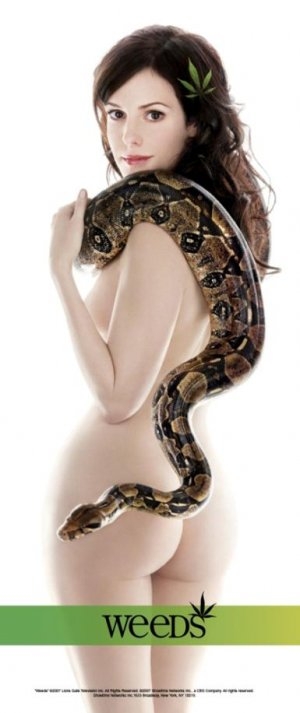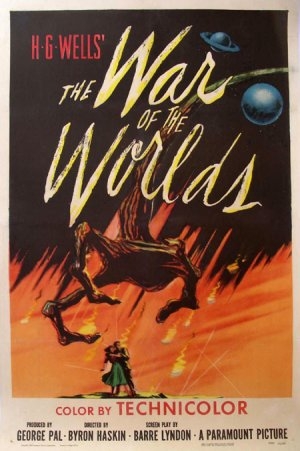 FRESH AIR
FRESH AIR![]()
The critically acclaimed television series Weeds is back for its fourth season, and creator Jenji Kohan is relocating the satire from suburbia to the borderlands. Nancy Botwin (Mary Louise Parker), suburban mother and drug dealer, trades her gated community for a beach town just miles from Mexico. The focus shifts from bourgeois hypocrisy to larger social issues such as immigration, free trade, and the larger effects of drug trafficking. Kohan is optimistic about the reinvention of the series and is eager to welcome actors like Albert Brooks to the cast. Before creating Weeds, Kohan also served as a writer and producer for Gilmore Girls. She received a primetime Emmy for her work with Tracey Takes On… in 1997. She has written episodes for Will & Grace, Mad About You and Boston Common.
RADIO TIMES
Hour 1
The world is running out of freshwater. Pollution, over-population, and climate change are leading to a global water crisis. Water-related diseases kill millions every year and the numbers will likely rise as water shortages spread. Experts predict that water is becoming the oil of the 21st century. This hour, we talk about “blue gold” with to Pacific Institute water expert PETER GLEICK. Listen to this show via Real Audio | mp3
Hour 2
The euthanizing of Eight Belles, whose front legs snapped at this year’s Kentucky raised concerns about the breeding of horses and their rigorous racing schedule. Then there was continuing debate over the use of steroids to enhance their performance. We talk about professional horse racing and the controversies surrounding the sport with MIKE JENSEN, who covers horse racing for The Philadelphia Inquirer and WAYNE PACELLE of the Humane Society of the United States. Listen to this show via Real Audio | mp3
![]()
War of the Worlds
Show #403
An examination of the power of mass media to create panic. In Radio Lab’s very first live hour, we take a deep dive into one of the most controversial moments in broadcasting history – Orson Welles’ 1938 radio play about Martians invading New Jersey. And we ask: Why did it fool people then? And why has it continued to fool people since? From Santiago, Chile to Buffalo, New York to a particularly disastrous evening in Quito, Ecuador. When Orson Welles decided to make a radio play of the H.G. Well’s classic, “War of the Worlds,” he had no idea that he would be branded by the FCC as a “radio terrorist.” The audience reaction – panic on a mass level never before witnessed – isn’t just a testament to Welles’ talent for gripping drama, it’s also a reflection of that moment in history. We take a close look at the way that the evolving news media collaborated with the events in Europe to prime the pump…We take an in depth look at a War of the Worlds radio play incident with even more dire consequences. In 1949, when Radio Quito decided to translate the Orson Welles stunt for an Equadorian audience, no one knew that the result would be a riot that burned down the radio station and killed at least 7 people. Reporter Tony Field takes us to Quito to finds out what really happened. But we’d hardly have decided to dedicate an hour to this if it was only a two-time occurrence. That’s right: it happens again. This time it’s in the 1960s in Buffalo, NY. Why does this keep happening? We talk to psychology professor Richard Gerrig who tells us that the answer may have to do with our natural response to stories…To get some insight into what would make a person want to fool their audience, we talk to Daniel Myrick. Myrick, with Eduardo Sanchez, made a film called “The Blair Witch Project,” which terrified its way to cult success and convinced a few people to never go camping again. We also talk with Jason Loviglio, a media historian, about how the soothing tone of FDR’s fireside chats, mirrored in the wartime reporting of Edward R. Murrow may have been the true target of Orson Welles’ adaptation of War of the Worlds. And in an ironic twist, the news media fully embraces Orson Welles greatest insight into broadcasting. It’s a truth so terrifying you won’t want to miss it: if the audience is scared, they will keep listening.
into one of the most controversial moments in broadcasting history – Orson Welles’ 1938 radio play about Martians invading New Jersey. And we ask: Why did it fool people then? And why has it continued to fool people since? From Santiago, Chile to Buffalo, New York to a particularly disastrous evening in Quito, Ecuador. When Orson Welles decided to make a radio play of the H.G. Well’s classic, “War of the Worlds,” he had no idea that he would be branded by the FCC as a “radio terrorist.” The audience reaction – panic on a mass level never before witnessed – isn’t just a testament to Welles’ talent for gripping drama, it’s also a reflection of that moment in history. We take a close look at the way that the evolving news media collaborated with the events in Europe to prime the pump…We take an in depth look at a War of the Worlds radio play incident with even more dire consequences. In 1949, when Radio Quito decided to translate the Orson Welles stunt for an Equadorian audience, no one knew that the result would be a riot that burned down the radio station and killed at least 7 people. Reporter Tony Field takes us to Quito to finds out what really happened. But we’d hardly have decided to dedicate an hour to this if it was only a two-time occurrence. That’s right: it happens again. This time it’s in the 1960s in Buffalo, NY. Why does this keep happening? We talk to psychology professor Richard Gerrig who tells us that the answer may have to do with our natural response to stories…To get some insight into what would make a person want to fool their audience, we talk to Daniel Myrick. Myrick, with Eduardo Sanchez, made a film called “The Blair Witch Project,” which terrified its way to cult success and convinced a few people to never go camping again. We also talk with Jason Loviglio, a media historian, about how the soothing tone of FDR’s fireside chats, mirrored in the wartime reporting of Edward R. Murrow may have been the true target of Orson Welles’ adaptation of War of the Worlds. And in an ironic twist, the news media fully embraces Orson Welles greatest insight into broadcasting. It’s a truth so terrifying you won’t want to miss it: if the audience is scared, they will keep listening.
 The Kills join host David Dye on the World Cafe with songs from their latest release, Midnight Boom. Determined sound experimenters, this punk-pop duo brings their gritty minimalist style to the quirky chants and handclap beats of ’60s schoolyard games. With a provocative delivery oozing attitude and tension, the pair adds an element of danger to child’s play, creating an album that feels rough, raw, and undeniably hip.
The Kills join host David Dye on the World Cafe with songs from their latest release, Midnight Boom. Determined sound experimenters, this punk-pop duo brings their gritty minimalist style to the quirky chants and handclap beats of ’60s schoolyard games. With a provocative delivery oozing attitude and tension, the pair adds an element of danger to child’s play, creating an album that feels rough, raw, and undeniably hip.
THE KILLS: URA FEVER
